Join the UVM community in bringing awareness to current efforts directed toward dismantling diet culture and promoting body liberation. This collection offers texts from individuals advocating for fat acceptance via lived experiences, intersectional identities and/or interest in equity for all body sizes.
Thank you to Michaela Wilson, current UVM Master of Science in Dietetics (MSD) student, for her contributions curating this Spotlight list with Christie Silkotch, Science and Data Librarian at Howe Library, and Laura Haines, Library Associate Professor at Dana Health Sciences Library.
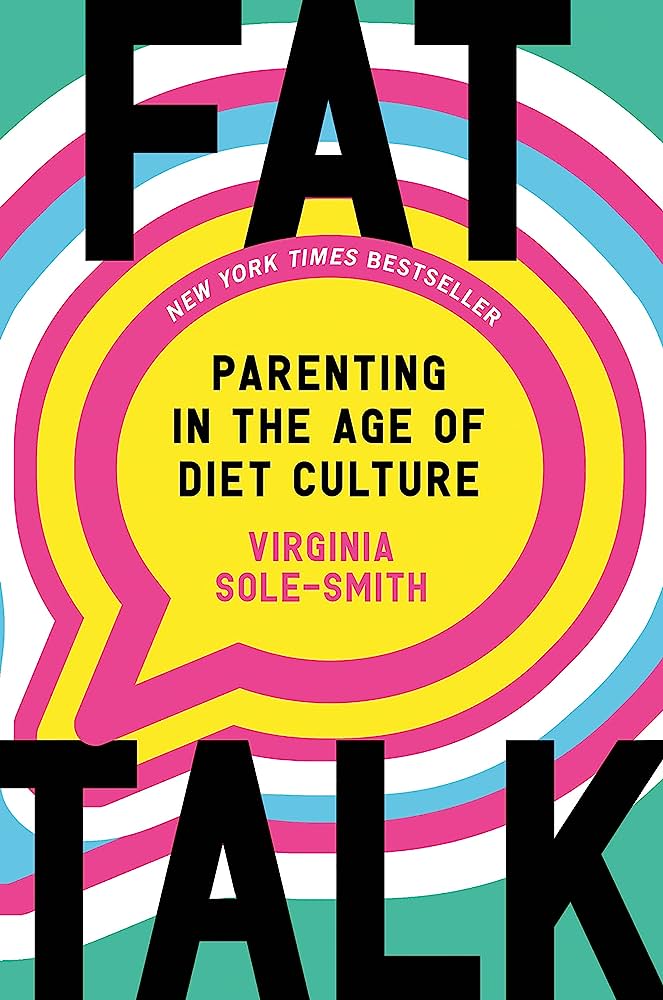
Fat talk : parenting in the age of diet culture by Virginia Sole-Smith
By the time they reach kindergarten, most kids have learned that fat" is bad. As they get older, kids learn to pursue thinness in order to survive in a world that ties our body size to our value. Multibillion-dollar industries thrive on consumers believing that we don't want to be fat. Our weight-centric medical system pushes "weight loss" as a prescription, while ignoring social determinants of health and reinforcing negative stereotypes about the motives and morals of people in larger bodies. And parents today, having themselves grown up in the confusion of modern diet culture, worry equally about the risks of our kids caring too much about being "thin" and about what happens if our kids are fat. Sole-Smith shows how the reverberations of this messaging and social pressures on young bodies continue well into adulthood--and what we can do to fight them. Fat Talk argues for a reclaiming of "fat," which is not synonymous with "unhealthy," "inactive," or "lazy." Talking to researchers and activists, as well as parents and kids across a broad swath of the country, Sole-Smith lays bare how America's focus on solving the "childhood obesity epidemic" has perpetuated a second crisis of disordered eating and body hatred for kids of all sizes. She exposes our society's internalized fatphobia and elucidates how and why we need to stop "preventing obesity" and start supporting kids in the bodies they have. Continuing conversations started by works like Girls & Sex, Under Pressure, and Essential Labor, Fat Talk is a stirring, deeply researched, and groundbreaking book that will help parents learn to reckon with their own body biases, identify diet culture messaging, and ultimately empower their kids to navigate this challenging landscape. Sole-Smith offers an alternative framework for parenting around food and bodies, and a way for us all to work toward a more weight-inclusive world--because it's not our kids, or their bodies, who need fixing.
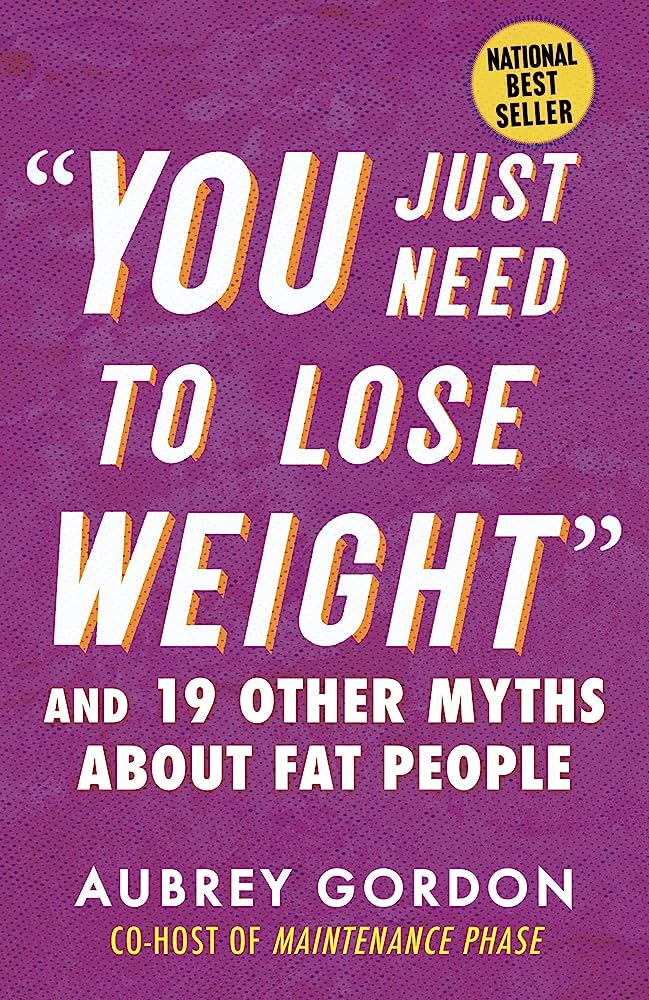
You just need to lose weight : and 19 other myths about fat people by Aubrey Gordon
The co-host of the Maintenance Phase podcast and creator of Your Fat Friend equips you with the facts to debunk common anti-fat myths and with tools to take action for fat justice.
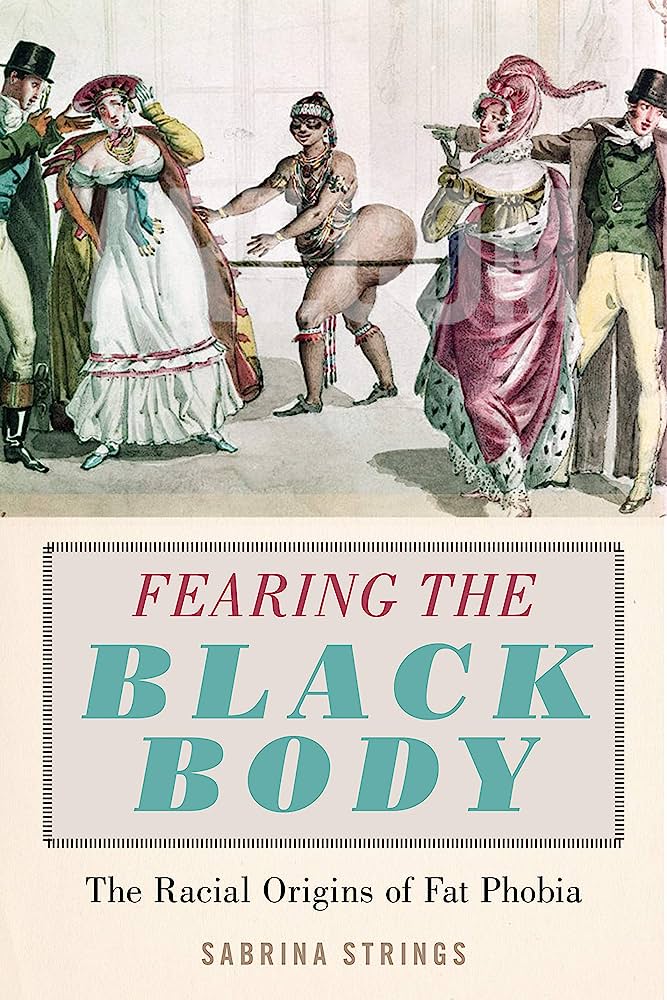
Fearing the black body : the racial origins of fat phobia by Sabrina Strings
There is an obesity epidemic in this country and poor Black women are particularly stigmatized as “diseased” and a burden on the public health care system. This is only the most recent incarnation of the fear of fat Black women, which Sabrina Strings shows took root more than two hundred years ago. Strings weaves together an eye-opening historical narrative ranging from the Renaissance to the current moment, analyzing important works of art, newspaper and magazine articles, and scientific literature and medical journals―where fat bodies were once praised―showing that fat phobia, as it relates to Black women, did not originate with medical findings, but with the Enlightenment era belief that fatness was evidence of “savagery” and racial inferiority. The author argues that the contemporary ideal of slenderness is, at its very core, racialized and racist. Indeed, it was not until the early twentieth century, when racialized attitudes against fatness were already entrenched in the culture, that the medical establishment began its crusade against obesity. An important and original work, Fearing the Black Body argues convincingly that fat phobia isn’t about health at all, but rather a means of using the body to validate race, class, and gender prejudice.
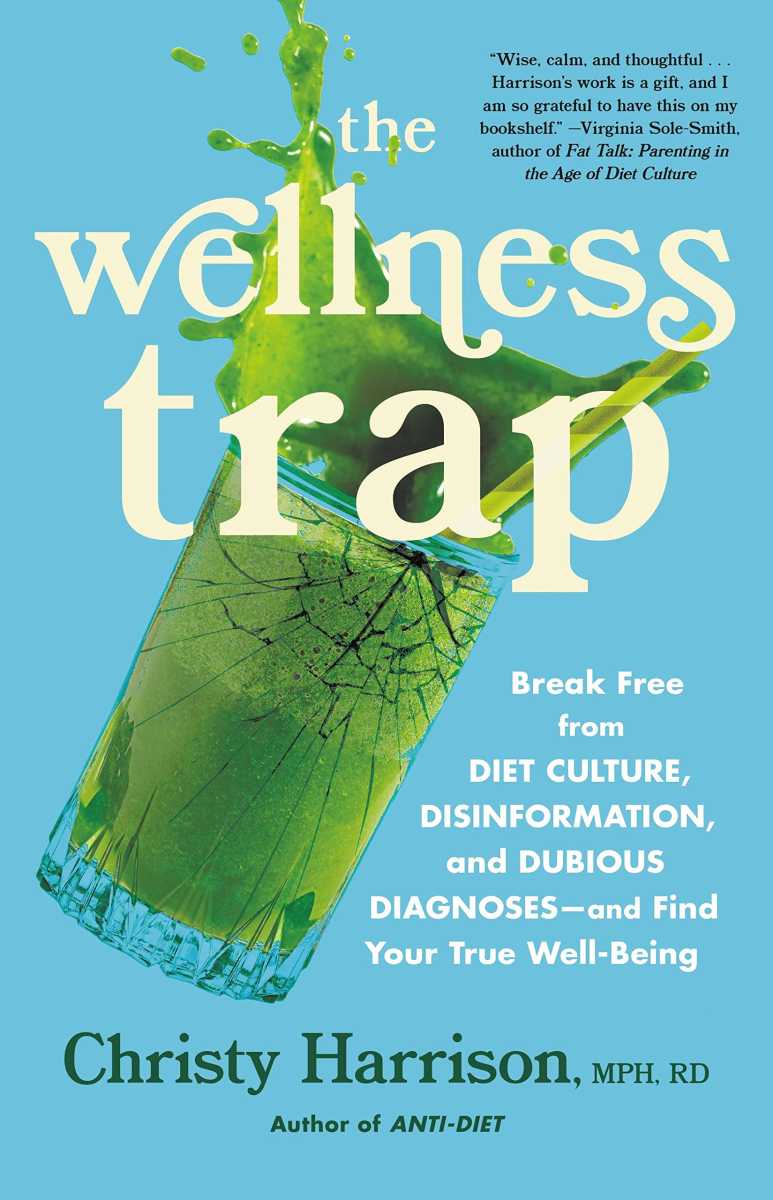
The Wellness Trap by Christy Harrison
It's not a diet, it's a lifestyle. You've probably heard this phrase from any number of people in the wellness space. But as Christy Harrison reveals in her latest book, wellness culture promotes a standard of health that is often both unattainable and deeply harmful. Many people with chronic illness understandably feel dismissed or abandoned by the healthcare system and find solace in alternative medicine, as Harrison once did. Yet the wellness industry promotes practices that often cause even more damage than the conventional approaches they're meant to replace. Weaving together history, memoir, reporting, and practical advice, Harrison illuminates the harms of wellness culture while re-imagining our society's relationship with well-being.
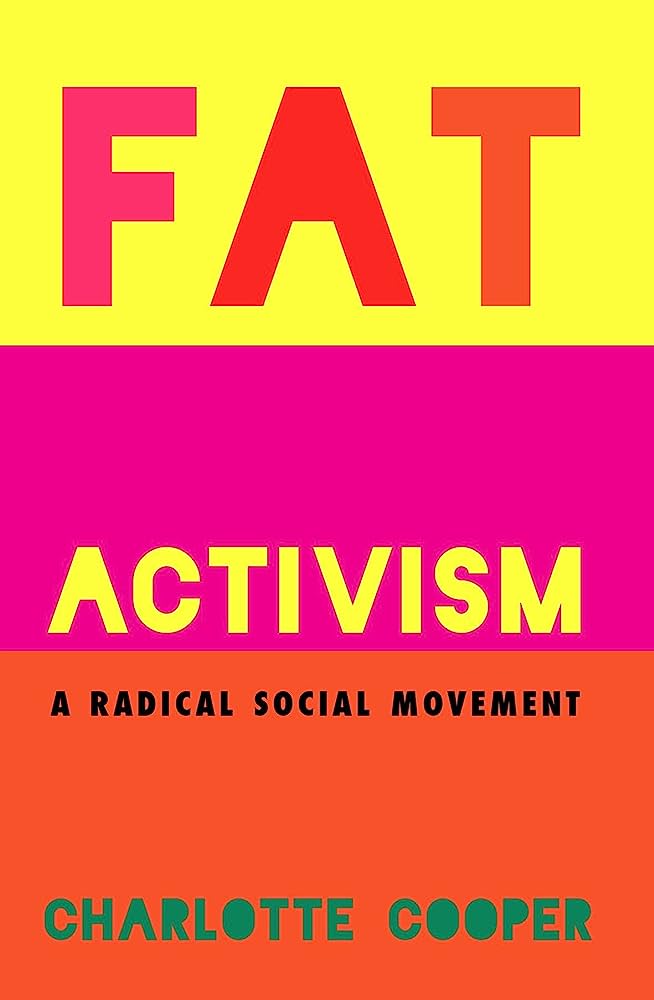
Fat activism : a radical social movement by Charlotte Cooper
In this new edition of her accessible autoethnography of fat feminist activism in the West, Charlotte Cooper revisits and discusses her activism in the context of recent shifts in the movement. The new preface explores the impact of the Coronavirus pandemic on fat people and fat activism and how Black Lives Matter is inspiring new forms of activism. Cooper issues a call to action in Fat Studies and offers alternatives to current public health approaches to Diabetes. What is fat activism and why is it important? To answer this question, Charlotte Cooper presents an expansive grassroots study that traces the forty-year history of international fat activism and grounds its actions in their proper historical and geographical contexts. She details fat activist methods, analyses existing literature in the field, challenges long-held assumptions that uphold systemic fatphobia, and makes clear how crucial feminism, queer theory and anti-racism are to the lifeblood of the movement. She also considers fat activism’s proxy concerns, including body image, body positivity, the obesity epidemic and fat stigma. Combining rigorous scholarship with personal, accessible writing, Fat Activism: A Radical Social Movement is a rare insider’s view of fat people speaking about their lives and politics on their own terms. This is the book you have been waiting for.
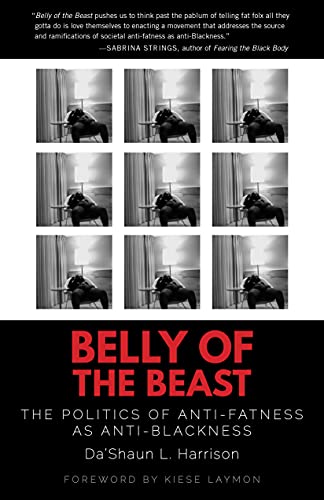
Belly of the beast : the politics of anti-fatness as anti-blackness by Da'Shaun Harrison ; foreword by Kiese Laymon
An exploration of anti-fatness and anti-Blackness at the intersections of race, police violence, gender identity, fatness, and health.
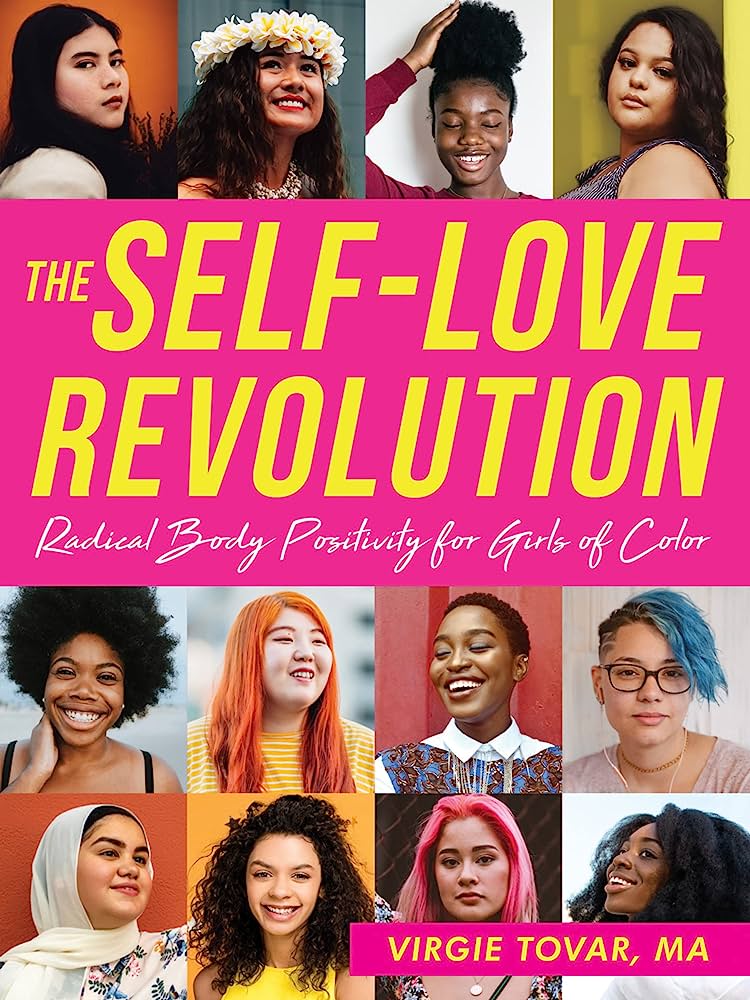
The Self-Love Revolution by Virgie Tovar
Every day we see body ideals depicted in movies, magazines, and social media. And, all too often, these outdated standards make us feel like we need to change how we look and who we are. The truth is that many teens feel self-conscious about their bodies and being a teen girl of color is hard in unique ways. So, how can you start feeling good about yourself when you're surrounded by these unrealistic -- and problematic -- images of what bodies are "supposed" to look like? This book is an unapologetic guide to help you embrace radical body positivity. You'll identify and challenge mainstream beliefs about beauty and bodies; celebrate what makes you unique and powerful; and build real, lasting body empowerment. You'll also learn how to spot diet culture and smash your noisy inner critic so you can start loving your body. It's time to create your own definition of beautiful, and recognize that your body is amazing. It's time for a self-love revolution!
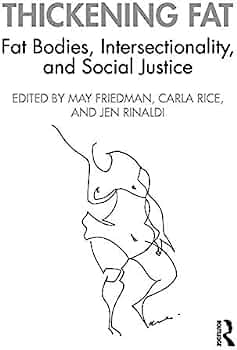
Thickening Fat: Fat Bodies, Intersectionality, and Social Justice by May Friedman
Thickening Fat: Fat Bodies, Intersectionality, and Social Justice seeks to explore the multiple, variable, and embodied experiences of fat oppression and fat activisms. Moving beyond an analysis of fat oppression as singular, this book will aim to unpack the volatility of fat--the mutability of fat embodiments as they correlate with other embodied subjectivities, and the threshold where fat begins to be reviled, celebrated, or amended. In addition, Thickening Fat explores the full range of intersectional and liminal analyses that push beyond the simple addition of two or more subjectivities, looking instead at the complex alchemy of layered and unstable markers of difference and privilege. Cognizant that the concept of intersectionality has been filled out in a plurality of ways, Thickening Fat poses critical questions around how to render analysis of fatness intersectional and to thicken up intersectionality, where intersectionality is attenuated to the shifting and composite and material dimensions to identity, rather than reduced to an add difference and stir approach. The chapters in this collection ask what happens when we operationalize intersectionality in fat scholarship and politics, and we position difference at the centre and start of inquiry.
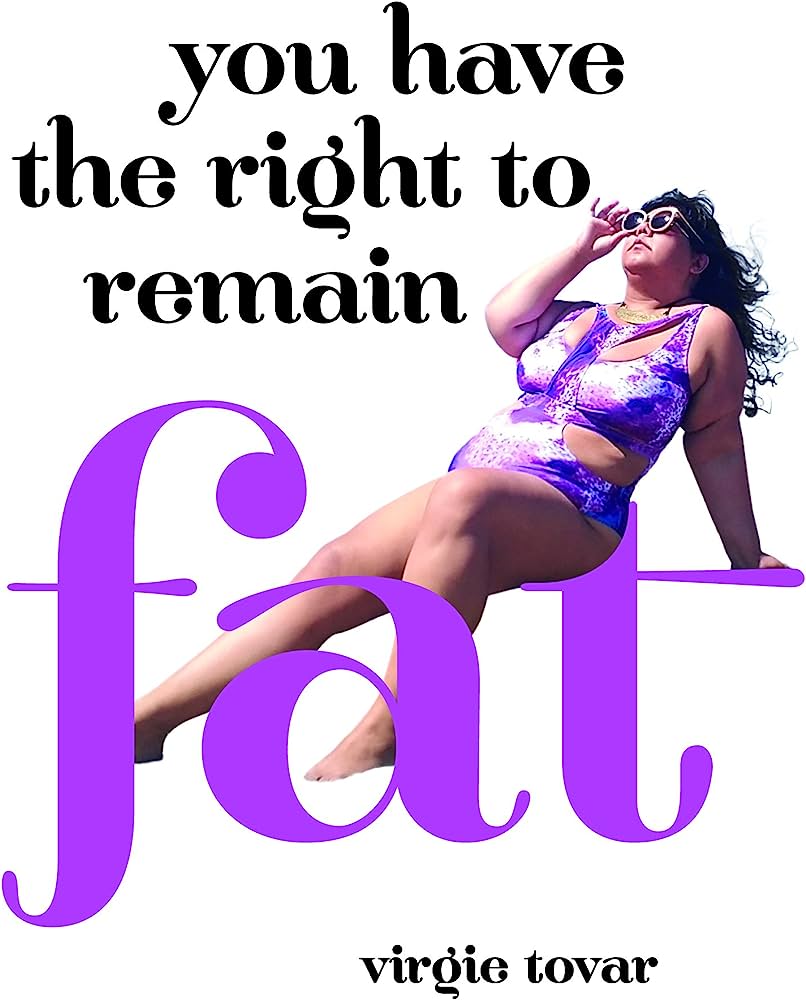
You have the right to remain fat by Virgie Tovar
Growing up as a fat girl, Virgie Tovar believed that her body was something to be fixed. But after two decades of dieting and constant guilt, she was over it--and gave herself the freedom to trust her own body again. Ever since, she's been helping others to do the same. Tovar is hungry for a world where bodies are valued equally, food is free from moral judgment, and you can jiggle through life with respect. In concise and candid language, she delves into unlearning fatphobia, dismantling sexist notions of fashion, and how to reject diet culture's greatest lie: that fat people need to wait before beginning their best lives.
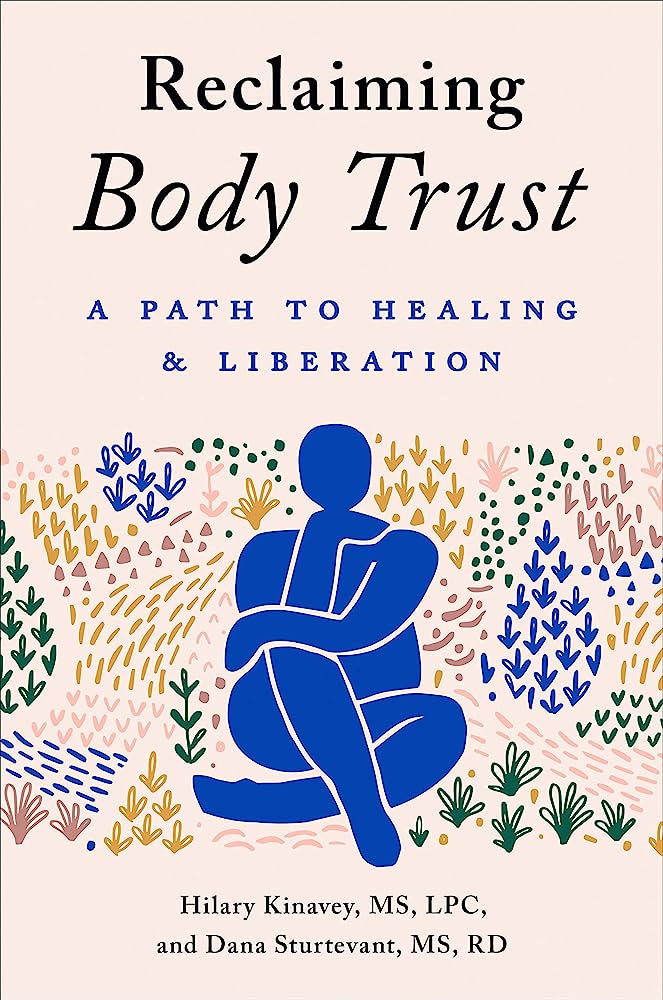
Reclaiming body trust : a path to healing & liberation by Hilary Kinavey, MS, LPC and Dana Sturtevant, MS, RD
Have you ever felt uncomfortable or not "at home" in your body? In this book, the founders of Body Trust, licensed therapist Hilary Kinavey and registered dietician Dana Sturtevant, invite readers to break free from the status quo and reject a diet culture that has taken advantage and profited from trauma, stigma, and disembodiment, and fully reclaim and embrace their bodies.
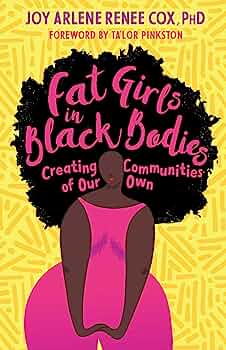
Fat girls in Black bodies : creating communities of our own by Joy Arlene Renee Cox, PhD
Combatting fatphobia and racism to reclaim a space of belonging at the intersection of fat, Black, and female. into three sections--"belonging," "resistance," and "acceptance"--and informed by personal history, community stories, and deep research, Fat Girls in Black Bodies breaks down the myths, stereotypes, tropes, and outright lies we've been sold about race, body size, belonging, and health. Cox's razor-sharp cultural commentary exposes the racist roots of diet culture, healthism, and the ways we erroneously conflate body size with personal responsibility. She explores how to reclaim space and create belonging in a hostile world, pushing back against tired pressures of "going along just to get along," and dismantles the institutionally ingrained myths about race, size, gender, and worth that deny fat Black women their selfhood.
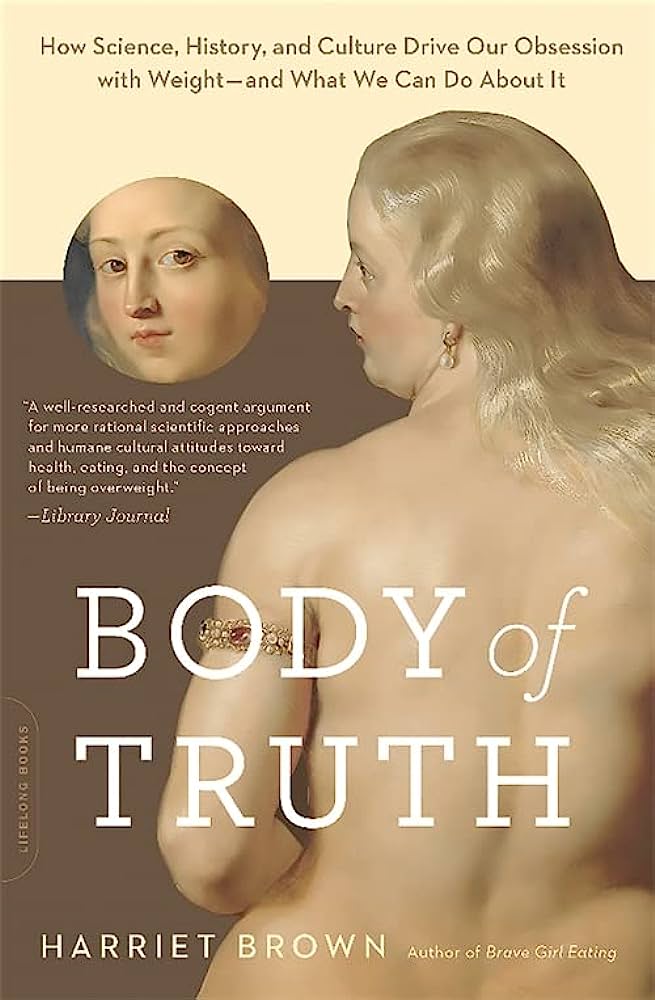
Body of truth : how science, history, and culture drive our obsession with weight - and what we can do about it by Harriet Brown
Over the past twenty-five years, our quest for thinness has morphed into a relentless obsession with weight and body image. In our culture, "fat" has become a four-letter word. Or, as Lance Armstrong said to the wife of a former teammate, "I called you crazy. I called you a bitch. But I never called you fat." How did we get to this place where the worst insult you can hurl at someone is "fat"? Where women and girls (and increasingly men and boys) will diet, purge, overeat, undereat, and berate themselves and others, all in the name of being thin? As a science journalist, Harriet Brown has explored this collective longing and fixation from an objective perspective; as a mother, wife, and woman with "weight issues," she has struggled to understand it on a personal level. Now, in Body of Truth, Brown systematically unpacks what's been offered as "truth" about weight and health.Starting with the four biggest lies, Brown shows how research has been manipulated; how the medical profession is complicit in keeping us in the dark; how big pharma and big, empty promises equal big, big dollars; how much of what we know (or think we know) about health and weight is wrong. And how all of those affect all of us every day, whether we know it or not.The quest for health and wellness has never been more urgent, yet most of us continue to buy into fad diets and unattainable body ideals, unaware of the damage we're doing to ourselves. Through interviews, research, and her own experience, Brown not only gives us the real story on weight, health, and beauty, but also offers concrete suggestions for how each of us can sort through the lies and misconceptions and make peace with and for ourselves.
